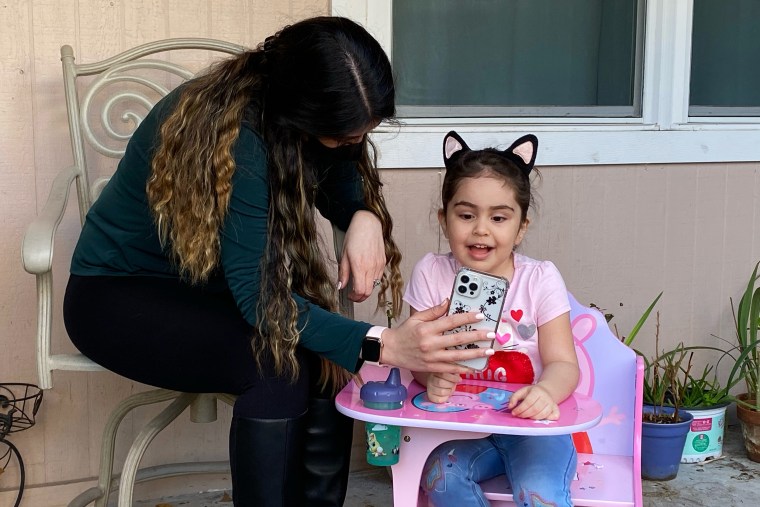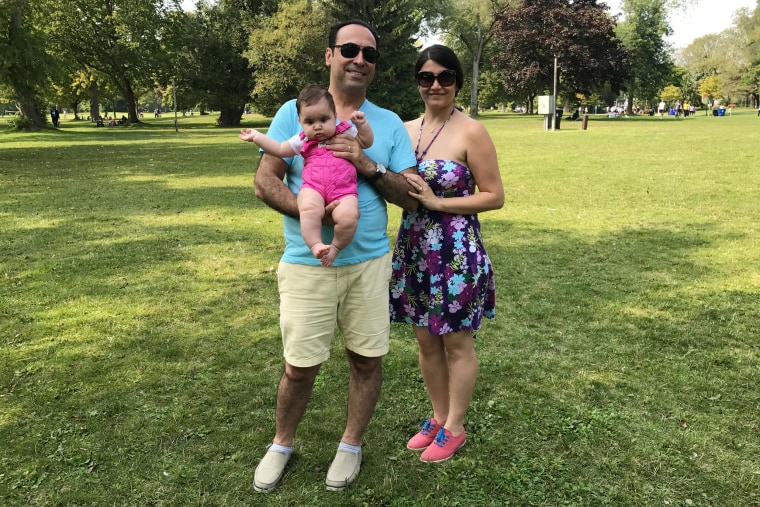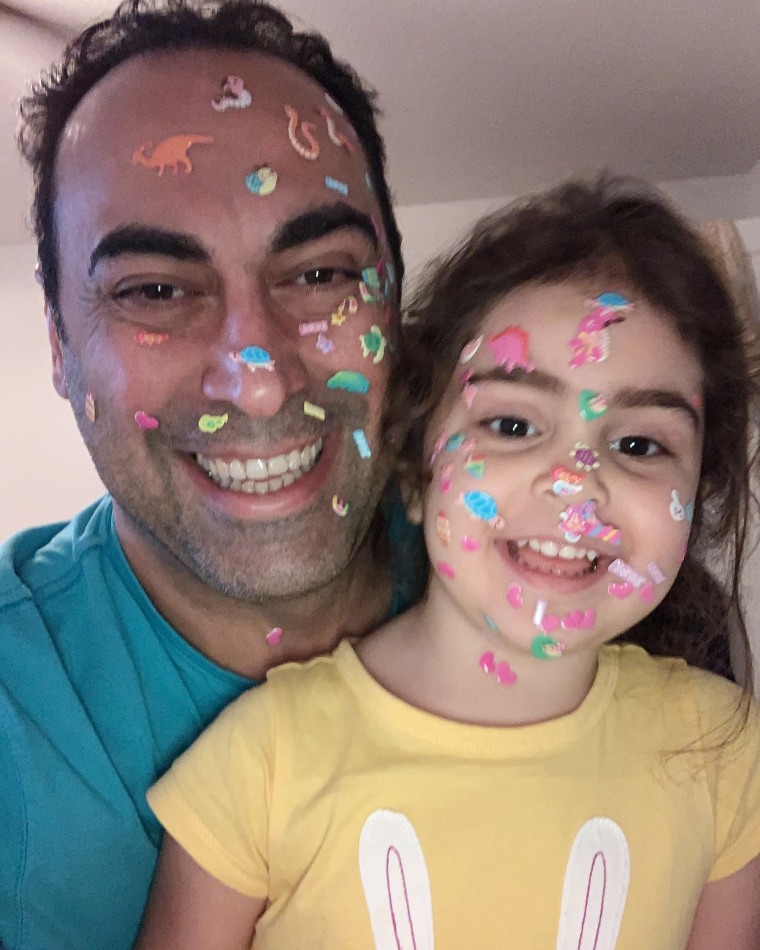HOUSTON — When President Joe Biden rescinded former President Donald Trump’s ban on immigrant visas from many majority-Muslim countries on his very first day in office, those eagerly waiting the change were elated.
“I was so happy, so happy,” said Safieh Mohammadi, a U.S. green card holder who lives in Houston and has been separated for five years from her Iranian husband, Bahram, who is currently in Canada. “I started to actually do something since I knew that my husband was coming. So I went to shop, got a cover for my bed. I wanted to do something, you know, because I thought he's gonna come.”
But Biden’s reversal of one of Trump’s signature actions hasn’t resulted in a flood of airport reunions or any quick changes to his visa application. Instead, like almost all of the families who were impacted by the ban, their case is stuck in limbo. Her case is pending, and she has no idea when her family will be together again.

“I have to take care of my child, go to work, go to school and manage the whole thing like a single mom,” she said. “I'm not a single mom. So it is really hard. I just want my family back. That’s it. We came here legally and my husband wants to come here legally.”
Mohammadi is just one of thousands of people across America still living in separation from their loved ones due to what was broadly dubbed the former president’s “Muslim ban.” Her sister Massy, a U.S. citizen, has been separated from her adult children for years.
Trump’s executive order in 2017 sparked mass protests at airports and in major cities across the country. Several iterations of the ban were challenged through the legal system and struck down in courts, but one version was ultimately upheld by the Supreme Court in 2018. Different countries were added to the list, with what was ultimately known as Presidential Proclamations 9645 and 9983 banning most immigration from 13 countries: Myanmar, Eritrea, Iran, Kyrgyzstan, Libya, Nigeria, North Korea, Somalia, Sudan, Syria, Tanzania, Venezuela and Yemen.
As of last September, more than 40,000 applications were denied due to the bans, according to State Department figures. But that number doesn’t include people with applications pending or the unknown number of people from these countries who never applied to begin with out of fear of rejection.
Those cases are included in what’s become a tremendous immigrant visa backlog that has significantly ballooned during the last year, partly thanks to coronavirus travel and social distancing restrictions, closures and adjustments at embassies and consulates overseas.

In January 2020, around 75,000 immigrant visa cases were pending at the National Visa Center ready for interviews, but as of February 2021, there were 473,000 cases, Acting Deputy Assistant Secretary for Visa Services Julie Stufft announced at a briefing earlier this month. That number doesn’t even include cases where the applicants have not yet had an interview or where individuals are still gathering the necessary documents.
A State Department official cited declining revenue due to the coronavirus as a reason for why this visa backlog is building, telling NBC News in a statement, “The Bureau of Consular Affairs is primarily reliant on revenue from visa and passport fees to fund our operations. The dramatic reductions in fee revenues due to the pandemic will have continuing effects on our staffing and available resources for several years.”
Contributing to the backlog was also Trump’s freeze on green cards issued during the pandemic last year with the aim of shielding the U.S. labor market. Biden resumed issuing them in February.
There’s no timeline for how soon these cases could be addressed, only adding to the anxiety among people who have already been separated for years.
For Mosed Mohamed and his son, U.S. citizens who have been living in California’s Bay Area, every day without their family intact has been difficult. His Yemeni wife has been living in Cairo, separated from them while they face numerous health issues.
While Biden rescinding the bans has offered some hope, and Mosed recently received an email from the embassy to resubmit his wife’s paperwork, he describes the waiting game as brutal, “running in a tunnel with all darkness, there is no end of it.”
“We're not asking for anything else — just to be together with the family, the single family, that’s it,” he said. “Just watching your kids, in front of your eyes, you know, it's hard. I mean, we work hard to get to America, to live the dream, but not for me or for my son only. I need my wife to be there, because without her, I mean, the family's not there, it's nothing.”
Mohamed’s immigration attorney, Lina Baroudi, who represents a number of cases related to the travel ban, said he is her only client who has received a recent update.
“What I'm seeing is a tragedy across the board,” she said. “I don't want to just frame it as it's a sad situation because it's more than that, it's infuriating. Because this is something that can be changed by the U.S. government, and they need to take responsibility and accountability. ... I have all kinds of cases, you know, spouses trying to reunite with their spouses, with their children. I have a few cases of U.S. citizen parents who have petitioned for their children. Their adult children are basically in limbo waiting to come here.”

Safieh Mohammadi even wrote a personal letter to Biden asking him for help speeding up her case. “I know he’s busy with Covid and everything in the country, but I asked him if it's possible to do something for us,” she said.
Her immigration attorney, Mana Yegani, called the situation heartbreaking because “America is a place for where we pride ourselves on family unity, and we can see that families being separated like this really takes a toll on people.”
“If the Trump travel ban was not imposed, Bahram would be in the United States right now with a green card,” she said. “His case was basically on the brink of getting a visa when the travel ban was signed, and that delayed his case for years. And now unfortunately he's fallen into the backlog of the system.”
